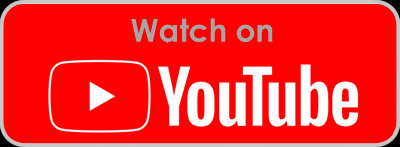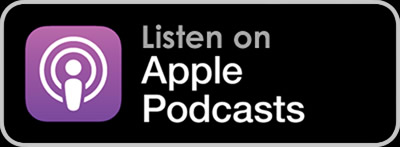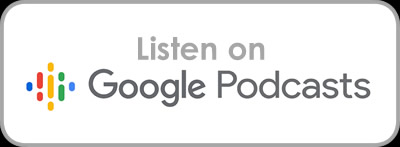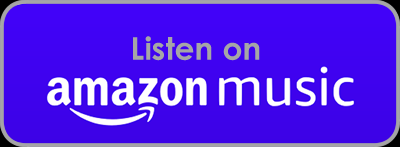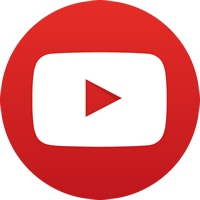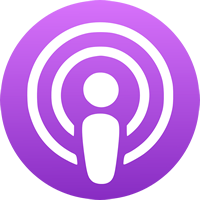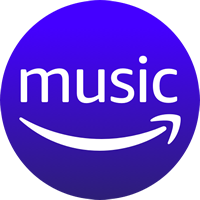I remember back in 2008 when I started working full-time in a digital marketing role.
It was a techie role that liaised with techies – it wasn’t real marketing – it was playing online. At least that’s what many traditional marketers thought at the time!
Fast forward 13 years and in many arenas, digital has overtaken traditional.
And that’s meant that the size of digital marketing teams has grown exponentially… Which in turn draws our attention to digital marketing leadership – what are the skills you need to be an effective digital marketing leader?
That’s precisely what I’m going to be discussing with my guest on Digital Marketing Radio episode 255.
He’s a former VP of SEO and Content at G2 – and a current Director of SEO at Shopify – welcome to DMR – Kevin Indig.
Key questions covered in this episode:
Are the skills required to be a successful digital marketing leader different to the skills required to be a conventional business leader?
What are the most important leadership skills you’ve developed over the past few years?
Where have you learned these skills?
How do you continue to learn new leadership skills?
How do you foster a culture of good leadership in your organisation?
Can a good practitioner become a good leader?
What are your thoughts on the difference between leadership and management?
Is it possible to continually grow as a leader and at the same time stay cutting edge with your digital marketing knowledge?
Audio recording:
Full transcript:
David Bain
Digital Marketing Radio Episode 255: the essential skills you need to become an effective digital marketing leader.
Bot
Digital Marketing Radio with David Bain.
David Bain
I’m David Bain. And this is Digital Marketing Radio with a podcast and YouTube show for in-house agency and entrepreneurial marketers. We want to stay on top of that it is tools, tactics and trends I shared by today’s modern marketing masters. I remember back in two days or nights when I started working full time in a digital marketing role. It was a techie role that blazed with techies. It wasn’t real marketing, it was playing online. At least that’s what many traditional marketers thought at the time. Fast forward 13 years and in many arenas digital has overtaken traditional. And that’s meant that the size of digital marketing teams has grown exponentially, which in turn draws our attention to digital marketing leadership. What are the skills you need to be an effective digital marketing leader? That’s precisely what I’m going to be discussing with my guest on Digital Marketing Radio Episode 255. He’s a former VP of SEO and content at G two, and a current director of SEO at Shopify. Welcome to DMR, Kevin Indig.
Kevin Indig
Fantastic job on the intro. David, it’s been it’s a pleasure as always to be on.
David Bain
It’s wonderful as always to have you on sir. I would just say you can find Kevin over at Kevin hyphen intake.com. So Kevin, it was you that suggested that we talk about leadership. So why is that?
Kevin Indig
You know, it’s interesting, David, when I look back at where I made the biggest growth in terms of learning over the last three years, it was actually more in leadership and personal development than SEO. And that’s even though my profession is SEO, or I would probably say by now it’s more what I call organic growth. We could talk a bit more about that later. But I really spent much more time reading and learning about leadership, working with executive coaches, with trainers, on how to build skills. And the surprising thing about that is that it actually helped me get better at SEO at the same time. So by learning how to lead others, I learned how to better lead myself.
David Bain
So are the skills required to be a successful digital marketing leader different to the skills required to be a conventional business leader?
Kevin Indig
I think so I think it’s I think this is a actually great example, the time that we live in the pandemic that force us to work remotely. I think that takes on a completely different skill set. But I think a slightly adjusted skill set compared to a leader who works for a company that works predominantly in person, for example, right? Basic leadership skills are the same in any leadership position, right? You need squirt certain skills, like directing people, motivating people, the management aspect of leadership, which is not the same as leadership itself. And then I think in a digital world, there are things that you have to embrace on top of that, because it’s digital. And I think I want to distinguish between a software company that works predominantly in person, a software company that works remote. And I’m saying that because Shopify, the company that I work at now made the decision to go 100% remote when the pandemic broke out. And that put us in front of new challenges. How do you build a social glue and trust that it’s so important within teams for them to be successful and perform at a really high level? How do you display empathy in a believable way remotely? And how do you get people on the same page and align them when you communicate predominantly through slack and some video meetings? So I would say there are differences and it depends a little bit on whether you work remotely or whether you work for a digital company in person.
David Bain
So going back two years ago, or so you still would have had fairly good leadership skills. But what are the skills that you didn’t have two years ago that you absolutely had to have for the potential pandemic?
Kevin Indig
Yeah, I think, you know, I think getting getting people excited about a vision in this remote world has a different taste to it than an offline world, nothing world. You know, you could you could get everybody in a room and he could develop this kind of feeling in the room with people that that kind of excitement that’s almost contagious. It’s not contagious. When everybody sits at home themselves, right? That’s we really have to hone in on on individual motivators, right and people have different motivators, and you have to be more conscious off that you have to get better at reading people remotely. That’s it’s it’s really tricky. There’s one aspect to it and the Video aspect or when in a video context or setting, but then how do you read people on slack? Can you build enough interaction you know, with them to understand when like how their responses different how that might reflect their so their their their kind of their state in the moments very, very difficult.
David Bain
So for team meetings on video, do you always insist that everyone has the camera on?
Kevin Indig
I don’t, I try to lead by example, and encourage people to do it this way. And luckily, it’s it’s a bit in our DNA. Of course, we have something going on, or you need to take your shut your camera off for a second, no problem, I would not come after somebody for doing that. If somebody would never turn their camera on, I would certainly want to ask why. Because I do think that seeing faces is important. Now, it’s important to keep in mind that you can also have too much of that. So I’m a big fan, for example of just phone calls for some for certain types of meetings, or walking meetings, we don’t have to turn your camera because it’s draining over time.
David Bain
So many people have certainly complained of feeling zoomed out whether you use zoom or not. How do you try to ensure that you don’t have too many meetings? So how many meetings is a good number of meetings to have?
Kevin Indig
That’s a good question. I think there’s there’s no perfect number, and it very much depends on how many people you lead. And if you if you’re a lead of leads, so to say right, if you’re a manager of managers, I, I think that you want to minimise meeting as much meetings as much as possible, is, especially as a remote first company, I think it’s quick to try to solve problems with meetings. But reality is that if you have people working around the world in different time zones, that is not scalable. If you’re a local company, and your whole company fits into one office, different situation, getting into a room, hashing things out can be immensely powerful. And even sometimes in a remote first company, you have to huddle together, you have to have an ad hoc meeting, you have to get that that is it is something that is not always avoidable. However, I think there’s a certain laziness that creeps up in companies, where they say, hey, let’s just get on a call and talk it out. And that’s okay, if you you know, if you aren’t a visual contributor, you’d want to talk with another individual contributor to overcome a problem. It doesn’t really work out when you manage a team of say, 2030 4050 people or more, that’s when you always have five people who want to quickly get on the call to hash things out or to talk something through. And that’s when you have to create a culture of asynchronous work, right? Where, okay, maybe we start with a one pager and a Google Doc, and let’s comment on that. Let’s let’s give ourselves time to read it on our own time. Let’s see if maybe by forcing ourselves to be precise and explicit, maybe we can, you know, scratch out 90% of the unclarity that that’s actually that we actually tried to kill with a beating
David Bain
to where do you learn your leadership skills? Yeah, that’s
Kevin Indig
such a good question. I think there are three good sources I maybe for one of them is certainly books, I’ve been reading quite a lot of books about leadership and different parts of leadership that have really helped me grasp certain concepts, and put new tools in my tool belt. The second is application itself, right, you want to learn by applying those tools. The third is with coaches and and mentors, I actually have a really good experience with executive coaches or leadership coaches, who you can talk problems through with. And then fourth is peers or people at other companies, we’re in similar situations we can talk to about certain leadership problems. And I think applying these four different ways to learn at the same time has been the most helpful for me and shown to be really effective.
David Bain
So you say, coaches, mentors, is that something that organisations that you’ve worked and have paid for? Or is this something that you’ve actually proactively seeked? yourself?
Kevin Indig
Yeah, I was very lucky to have coaches that company paid for both at Shopify energy to where I work previously, in fact, that jeetu, you know, and I really have to thank the CEO God able for that. He introduced me to this idea of conscious leadership. And he knows the value of coaching, just like my current CEO, Toby Luca, also a huge fan of coaching. In fact, we have a whole coaching organisation within Shopify, so these are, these are full time employed. Coaches at Shopify, that help and but they’re coming back to do to Godard’s was really recognising the value of coaching and paid for executive coaches to help us and to teach us this idea of conscious leadership, which is really embraced in the leadership organisation edgy. And in similar types. We do have our own leadership philosophy at Shopify, and I think it made all the difference in the world.
David Bain
Okay, and you also mentioned books and tools. They’re a great tool. Get one or two specific recommendations from you. What’s one or two leadership books that you particularly recommend? Yeah, I
Kevin Indig
think you know, my leadership Bible is the book The 15 commitments of conscious leadership by Jim Detmer. It’s an absolutely outstanding collection of different principles that help with leadership. And it’s it’s not it’s more about the context and the content. So it doesn’t teach you how to have the best one on ones how to define a vision, how to come up with a roadmap, it much more helps you with the, the, the connective tissue that you build, between you and your leaders, also, between you and yourself, how to cope with the stress that leadership comes with, and all these things. It’s a, it’s an amazing space, I can, I can recommend everybody to check it out. They also have a free collection of materials on their website, just google conscious leadership. And you’ll find that and they have all the 15 commitments out there, they have a couple of videos and guided meditations. So it’s it’s very open source, so to say and, again, that there’s so many deep lessons in this, this book and the philosophy that will probably take many, many months of recordings to bring all that to light, but I can strongly recommend checking that out.
David Bain
Great resource, I’m sure. So you also mentioned one on ones there as well. When I was in a manager in various organisations, I had some one on ones with my team on a weekly basis. And I find that to be really effective. What kind of frequency do you recommend for one on ones? And what should I do one on one meeting look like?
Kevin Indig
Yeah, the first question to actually answer is what type of one on one do you need and want to have? So I have a weekly one on one with my direct reports for 45 minutes, which are mostly about short term priorities and status updates. How is this project doing? What do we do about that problem? What do you think about this? And what are your top three priorities, the moment the short term, there are other parts, the other one on ones as well? There, there are developmental one on ones very, the only thing you talk about is how to build skills for the report how to bring it out report to the next level career development, and have these about it ranging anywhere from one to three times a quarter. And that’s the only thing that we’re talking about, you know, it’s really important to separate one on ones like that. And then sometimes I have a more personal one on one, which means that when I realised that at the beginning of the one, one, that there’s something really bothering the other person, or they’re just not present in the moment or you know, sometimes you can just tell by the face of people or the way they talk. That’s when I’m like, Okay, let’s, let’s, let’s throw the agenda out of the board. Like, tell me what’s up? What are you going through? What’s happening? What are you struggling with? What you know, what do you feel in the moment. And I have found those one on ones to be the most impactful because it really helps you to, to, to help your direct report, right, which at the end of the day is manager is one of your responsibilities. also develop more empathy, and really understand what they’re going through what bothers them, and also uncover some deeply rooted issues. And those those are the kind of problems where when you solve one problem, you actually solve the 1000s. So the type is important, and that the type that defines the frequency and the frequency. That is why I mean students.
David Bain
Great, great, it’s certainly wonderful when you build up enough trust with people that they’re willing to have a very personal conversation with you about their immediate concerns and, and and personal issues. How do you go about building up that trust is just a case of being a leader that’s there all the time that’s demonstrating your industry knowledge? Or do you have other tips that you can share in relation to building up trust?
Kevin Indig
Yeah, trust is the most important and fuzzy concept and leadership. There are two fantastic books that really drilled the concept of trust into my brain. The one is good to great from Jim Collins. The other one is certain to win by Chet Richards. And both books make the point that trust is absolutely important. And it is important because it helps you basically operate with more implicit understanding than explicit understanding. And so what I mean is that if you imagine a soccer team, we just had the Euro Cup. And it made me think a lot about teams and how great teams operate. And the one thing you’ll see something in soccer, you don’t have time to really communicate during the actual attack or defence, right? You cannot shout over you do this. I do that okay, everybody. There’s no time for that the decisions happen within milliseconds. And so what the greatest teams have is what we call a German finger spits in the future, and what we could what we could translate loosely into the feeling at the tip of your fingers. And it means this, like intuitive understanding where you, you know what the right thing to do is, subconsciously, or unconsciously, right, and greatest teams, they all, they all intuitively know what the right thing to do is. And that’s powerful, because first of all, everybody’s on the same page. And second, you don’t need to spend a lot of time bringing everybody on the same page or communicating, you know, you can make the right decisions in the moment, get everybody on the same page move in the same direction. And that’s why trust is so powerful. And you shape it in several ways, right? The first thing is, trust takes time, you need to prove that, you know, you you do what you say that, you know, you’re not a threat, quote, unquote, to people, especially when you inherit a team or you start with a new team. So there’s there is a proving yourself over time and time again, that fosters trust. There is also this point about just spending time together outside of a work context. So I’m a big fan of social hours, or social gatherings where we play or we just talk about something that is not work to foster that social glue. And then I think a lot of trust comes from just building a relationship with the individuals, not just you and your direct report, but the dark reports between each other. At Shopify, we have this concept of the trust battery, which gets can be charged or uncharged based on what you do. There are many things to charge a trust battery, like doing what you say, like, you know, being on the same page. Even, you know, bringing up doubts and challenging ideas, I can also charge across battery, because you know, that other person doesn’t just say yes to everything you say. So there are many ways to build trust. I do think in a remote world, you have to be way more intentional about building trust, because you can’t just pull somebody by the arm and be like, hey, let’s go have a drink after work and talk about life. And I think still, it’s one of the most important things that you can and have to do as a leader for your team.
David Bain
Do you think you can ever get to the same levels of trust for a completely remote team? Or is it always going to be slightly easier and better to have a face to face team to develop that close relationship with?
Kevin Indig
It is possible, but it will take longer, I think you can maybe within a week of face to face time, probably build the amount of trust that it will take you maybe three months to build within the team. And of course, these these, you know, time periods are very arbitrary. But I made the experience a pass that like a very well planned offside that doesn’t just revolve around work, can build more trust than three months of activities online. That’s, that’s reality. And I think that everybody can choose to do that. But when you look at companies that started remotely, and I much prefer companies that decided to go remote for the pandemic programme, speaking about companies that started remotely like automatic, for example, the makers of WordPress, they all have at least a yearly gathering where they fly everybody in, they only focus on building that social glue. So I think there is something that’s still very difficult to replace, in the work space that builds trust, and that is the face to face interaction. But we have to find better ways to build trust, you know, I think it’s it’s, it’s lazy to say, Oh, well, it’s just not the same, so we don’t try.
David Bain
So it certainly sounds like you’ve worked very hard on leadership and have some wonderful leadership skills. But if you work in a big organisation, if you’ve got a very big team underneath you, you can’t do everything yourself. So how do you foster a culture of great leadership within your organisation?
Kevin Indig
Yeah, it’s such a good point. And I think that your team as a leader is an extension of yourself, and you ultimately carry the responsibility. I’m actually not a fan of this, like classic hierarchy pyramid where the leader is on top, and much more think about the inverted pyramid where the leader is, quote, unquote, the servant of his leaders and his team’s right, there’s a certain aspect of service that you have to fulfil as leader. And I think setting the right examples is a huge driver of the culture of your teams. And a very simple example is that, you know, at Shopify, when I started to publicly state that I’m going to take a vacation and I’m going to be off, I got 50 and a 50. But like, you know, a lot of requests for vacations, because now people understood Okay, it’s it’s okay to take a vacation. It’s okay to type to take time off. So leading by example, so, so, so important, understanding people on a deeper level, I’m a big fan of the enneagram, which is something like a personality test. But instead of telling you what you do, well, it goes back to your motivators, it goes back to your childhood of it goes back to how you were showing love, and how that motivated you to be a certain way. It’s actually you know, I don’t want to be, too I want to I don’t want to go too deep down that rabbit hole. But there’s a lot of that in the workplace. And it’s a lot about how people show up, whether they show up as themselves. And whether you as a leader can understand who you work with on a deeper level. And so I’m very big on understanding that. Sharing that and then there are a couple of other like tactics or tools that you can pull from. One is to, to praise publicly, but criticised personally. So I, for example, never call somebody out in a meeting and give them constructive feedback right there, because it can be very off putting in a group setting. That’s one way that also fosters trust. And then again, setting the right standards, right, like, when you are in a group setting, or even just in a meeting with your staff, you know, how you like, quote, unquote, what you let go through what you accept as a, as a level of quality also sets the tone very much in terms of your cultural standards. And then the last one that I that I maybe you want to bring up is this idea of ownership. I’m not a big fan of micromanaging, I will do it if I have to. But I’m a big fan of helping people understand what they’re responsible for and what the expectations are. And that is another way to foster trust, because it gives people an idea of where they are in the moment. So when you tell people, hey, you are responsible for the project, that is the outcome that I expect, go, that is very empowering to people, shows them that you trust them. And yet at the same time, you save yourself from having, you know, to micromanage too much. Now, you can’t check in from time to time to see like How’s it going? Where do you need help. And that is a leadership process in and of itself to, to teach and educate people that when things go wrong to escalate early and often. But that simple act of empowerment goes a really long way to build a leadership culture.
David Bain
So two quick questions to finish off the sanction. And they’re both related. So ask them both at the same time, you’ve got a very strong background in SEO. So probably makes this question quite appropriate. So can a good practitioner become a good leader? And also, in relation to that? Is it possible to continually grow as a leader? And at the same time stay cutting edge with your knowledge of digital marketing?
Kevin Indig
Yes, and yes, I think a good visit is on to the next one. No, just kidding, of course, elaborate a little bit on that. A good I see a good individual contributor can absolutely become a good leader. But there’s one classic challenge that they have to overcome. And that is the fallacy of trying to do everything yourself. I see it almost every time you have this really strong performance, because there are so strong, they’re often being promoted to a leader, which, you know, is arguable if that’s if that’s the best way to create leaders, because in a sense, you didn’t cut off your strongest leg. But that’s the reality of how it often goes. And so the first thing that this leader tries to do, is everything themselves. And that is also the harsh awakening that they go through because they realise they can’t do everything themselves. They cannot micromanage, take on all the projects, you know, they have to learn to delegate to trust, and to set clean agreements. Clean agreements, basically means who does what by when it’s very straightforward. And it’s also the most violated aspect of communication in the workplace, either because we we think we come across come across harsh, we give kind of when we make clean agreements, or we’re scared that the other counterpart or the our direct report is not on board, you know, we’re scared of conflict. But clean agreements are absolutely crucial for being on the same page, and learning how to negotiate that in a in a way that is not threatening. That is a skill that most visual contributors have to develop. So this whole idea of delegating, leveraging your team, none other than an abusive way, but like making use of your team, that is that is something that you have to learn. I had to learn myself. I did not understand it at first. And so I think that i think that’s that’s the challenge that every individual contributor has to overcome when it comes to staying Cutting edge, I think it’s also possible, I think the, the, the thing you have to come to terms with is that you cannot do everything yourself. Because there was a time when you know, you were promoted from an individual contributor, and it was probably because you were cutting edge because you were really good. And that’s a very satisfying feeling. Because you get the job done yourself. As a leader, you can still stay cutting edge, but you have to learn from your individual contributors. That’s how you stay cutting edge. And the tricky part is that it wasn’t you who came up with an idea or you executed on the idea that makes some leaders feel like a fraud. But I think that’s totally fine. You know, like there is no, I think the idea or the concept of having an original idea, or being the only innovator is pretty flawed anyway. So by making sure you give credit where credit is due, I think you can still share cutting edge ideas, you can still be cutting edge. And also, if you don’t feel like your team is cutting edge might be a good red flag to investigate whether it is and if there’s a problem that we’re something that you might want to change.
David Bain
First off, I’d like your thoughts on actually, it seems fine to learn from your team as well. And you can actually say to your team, it’s your responsibility to help to keep me cutting edge as well and just get them all involved and get them fired up by doing that. But love that perspective. I thought well, let’s segue to part two of our discussion. So it’s time for Kevin’s thoughts on the state of digital marketing today. So starting off with SECRET SOFTWARE. So Kevin share a lesser-known martech tool that’s bringing you a lot of value at the moment and why that tool is important for you.
Kevin Indig
It’s hard to say if it’s lesser known, but I had a lot of joy working with air table. Air table is basically a connected database slash document software. It’s something like Excel on steroids. And I learned about a framework for experimentation velocity, which is really important in growth. from various contractor, I think he worked at Dropbox, if I’m not mistaken. And I adapted that framework to my own SEO experimentation framework. And I learned that through air table and an air table allows you to execute that pretty well. That what I love about it is allows you to it creates real time reports right next to your data. There’s almost like a dashboard with an Excel attached to it’s a very cool experience a very great tool, you can also share all your reports and databases. So that’s one that would call up.
David Bain
Great, well, we haven’t had that recommendation before. So it’s always good to have a new one. So moving on from something that you currently use to something that you’re going to use that that is NEXT ON THE LIST. So what’s one marketing activity or tool that you haven’t tried yet, but you want to test soon?
Kevin Indig
It’s probably a bit of a cop out. But we built most tools ourselves at Shopify. We’re putting together a whole suite of SEO tools that I’m really, really pumped and really excited to try out. If I you know, if I had to give another example, there is a task management tool called mem mem that seems really interesting. I’m on the waitlist right now that I’m really interested to have to test out, I still think that you know, there’s room for growth in the test management world, that tool seems to do some things pretty, right. So besides the cop out, that’s the one that
David Bain
well, it’s always good to have a copy as well. But it’s nice to have the second option as well. I think the challenge with developing tools in house is sometimes they take longer than you intended, sometimes they don’t become priority. And then individual departments, I guess can become frustrated. I’ve certainly worked in large or larger organisations that do their own things. But I’ve wanted to use external tools, because I thought they had more functionality. Have you ever had that conundrum where you’ve, you’ve kind of been tied to internal tools, but you wanted to use external ones?
Kevin Indig
Luckily, not yet. But I can totally see that. And so the philosophy that I’m following is that it’s okay to build an internal tool, but it has to provide the functionality of a third party tool and if it doesn’t have that, then you need to use the third party tool until they are both on par and then you can take your own tool to the next level. So I do I do see the same risk being two Titans Oh tools.
David Bain
Absolutely. I’m okay. Well, let’s move on to the this or that round. So this is the quick response round 10 quick questions, Just 2 rules here. Try not to think about the answer too much. And you’re only allowed to say the word both on one occasion, so use it wisely. Are you ready? Okay. Yes. Tick Tock on Twitter, Twitter, Facebook or LinkedIn, LinkedIn, YouTube or podcast, YouTube, traffic or leads, leads, paid search or SEO, SEO, ads or influencers. Influences Google ads. Facebook ads, Facebook ads, email marketing or chat marketing, email marketing, Mar tech stack or all in one platform, my tech stack one to one or scale both up to the very end, but you certainly got there as well. I’ll tell you what. So for the previous episode, I interviewed Eli Schwartz. And he said, both for paid search and SEO, but you seem to think No, it’s definitely SEO. So is SEO used for all parts of the funnel from your perspective? And is it always better than paid search? No, no,
Kevin Indig
I do see a lot of value in paid search. I think it’s really important. And I do also think that SEO s SEOs, we were too fixated on SEO itself and diminished the value of paid search too often think there’s a lot of value in it. I think that to also go hand in hand. They’re siblings, they are related, they should work together. And there’s no, this shouldn’t be it this or that? I mean, of course, the show is very valuable, right? For the conversation. Absolutely. within a company, I don’t think you have to choose or should choose. I think they come with different ways to scale, right? There is a formula to decide which one makes more sense. It depends a little bit on on yourself, like how you sell what channels you have what the product looks like, right? For example, not every time can you use a paid model. Because the customer acquisition costs would be higher than the lifetime value of customer. You know, there are ways to go down the rabbit hole. But generally we dismiss paid search way too often as SEOs, and I think there’s a lot of value in it.
David Bain
Yeah, absolutely. And obviously, this round the this or that round, is, perhaps black and whites, but it’s a bit. It’s a bit amusing as well, it’s not intended to be completely definitive. And for me, it’s a useful way of just getting a feel for whether or not your initial reaction says something unexpected to me. And it’s a good way of just diving deeper into one answer. So I find it I find it useful, but not black and white. Absolutely. Let’s move on to the $10,000 question, if I were to give you $10,000, and you had to spend over the next few days in a single thing to grow your business. And I was not much for Spotify, but just play with me here. What would you spend it on? And how would you measure success?
Kevin Indig
Probably influencers, to be honest. And I think I think there’s a very broad term for things that for a lot of different things. But I do think that in today’s world, that is that has such a high emphasis on trust. And where it’s so difficult sometimes to break trust. I think a person that people listen to endorsing a product in an authentic way, goes, I think that’s almost unbeatable today, right? That goes that combines all the best things that you know, it’s like a very inbounded type of way. It comes with a tonne of trust, it might make people wear a product that they previously didn’t know that they wanted. And I think it’s very scalable, of course, based on the audience, so not sure if I would put all the $10,000 into the same influencer, I think I might spread that out a little bit to create some sort of a buzz or the illusion of you know, of a wave. But I think that is something to this whole context of influencer marketing.
David Bain
Great. Okay. Well, the lovely thing about working for a big ecommerce firm, if you can call it that like Shopify is that you’ve got a massive database of customers, you know, which customers you have have been with you for a while, are using your proposition extremely actively and which ones are most active and have the most followers on social media. So you can immediately pinpoint who would be the best influence influencers for you? What would be your process for identifying which influencers to target and to hopefully use in your campaign?
Kevin Indig
I think there’s 100. I tried to quit another term, but I think there’s there’s probably something like an influencer product fits where an influencer creates material that’s in line with your product, like natively or naturally fits into their narrative as well. Right. And so what I mean is, if you have an influencer, for example, who does tech reviews, and you have a tech product makes perfect sense. If they do tech reviews, and you want them to review a hotel might be a bit of a stretch, right? Like sometimes you see that when influencers try to endorse a product that just doesn’t fit or they try to make it happen somehow and it’s really awkward in the moment. So there’s like that, that you want to pay attention to. And you also want to think about their audience. You know, is the audience big enough? Do you have The state have the right kind of audience. And how does that fit to your product? Or have you maybe already captured a large chunk of their audience and just want to there’s there’s different reasons for why you want to work with them in the same realm, so I think it’s really important to measure the bottom line impact. So it’s nice to measure eyeballs or you know, pageviews or something like that, or even clicks. But at the end of the day, you really want to be focused on how much money did that make, you know, how much how much how many products did I sell through that influencer campaign?
David Bain
Great advice. Well, to finish off, let’s shift the focus to someone else who deserves it. So
Unknown Speaker
that is our MAGICAL MARKETER. So
David Bain
who’s an up-and coming marketer that you’d like to give a shout out to? What can we learn from them? And where can we find them?
Kevin Indig
Man? That’s such a tough question. Because there’s so many cool people that are there on the come up and so many, so many smart people out there. I would say, you know, I really want to make sure that I pick somebody with a diverse background. That’s, that’s important to me. And so let me quickly look up her name. I think she does a really cool job and hitting the the over lap between e commerce and SEO, her name is Christina as a Renko. She’s a SEO consultant and coach, and I think people can learn quite a lot from her
David Bain
superb stuff. I think I’ve had Christina on a webinar in the past. Actually, she’s from Toronto doesn’t, isn’t she? That’s correct. Yeah, absolutely. Yeah, go absolutely wonderful to what she’s doing a great job on LinkedIn as well. She’s just getting so much interaction with the posts that she makes. So she’s doing a wonderful job.
Kevin Indig
Yes, absolutely. So yep. And but that is to say, there are so many great people out there. It’s, it’s, it’s always awesome to see like in marketing, you know, I feel like, especially digital marketing, we have like a constant. I don’t know, like a constant wave of new people coming up. And it really does add to our craft.
David Bain
Yeah, absolutely. It’s it’s tricky to pick someone but it’s nice to give someone a shout out as well. So there we go. This was Episode 255 of Digital Marketing Radio, where Kevin intake from from Spotify shared some incredible advice about leadership specific tips and included the fact that he learned leadership advice in books, the 15 commitments of conscious leadership, various tools, coaches, mentors, mentors, peers. You also offer advice to limit the number of meetings, you tend to have 45 minute one on ones, you have weekly tactical and a minimum of once a quarter developmental one on ones and ad hoc one on ones as well. People are maybe looking a little bit down, be aware of the individual. In terms of developing trust. You recommended a couple of books for that as well. Good to Great uncertainty when your SECRET SOFTWARE was air table. And your NEXT ON THE LIST was a sort of Shopify tool. I’ll tell you what I wrote Spotify down. Shopify to Absolutely. And also, task management as well. And your MAGICAL MARKETER was Christina was Aramco. And Kevin, what’s the best social platform for someone to follow you and say, Hi,
Kevin Indig
thanks so much. I’m very active on Twitter. It’s at Kevin underscore Indyk, my DMS are open so feel free to pop in and say Hi, absolutely, Super Bowl. Thanks
David Bain
so much for coming on. I’m your host, David Bain. You can also find me producing podcasts for B2B brands over at Casting cred.com until we meet again, stay hungry, stay foolish and stay subscribed. Aloha
Bot
Digital Marketing radio.com Digital Marketing Radio,
Digital Marketing Radio,
Digital Marketing Radio, Digital Marketing Radio


